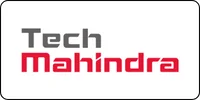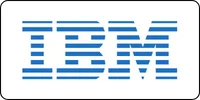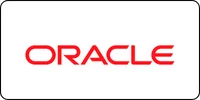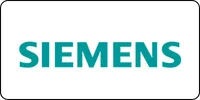RHCSA-Red Hat Certified System Administrator Training







RHCSA-Red Hat Certified System Administrator Training Course
The RHCSA (Red Hat Certified System Administrator) course is a foundational training program designed to build practical expertise in administering Red Hat Enterprise Linux (RHEL) systems. Tailored for IT professionals and aspiring Linux administrators, this course delivers hands-on experience through real-world scenarios and guided labs.
If you’re looking for the best RHCSA training in Vadodara, this program covers essential system administration tasks, such as user and group management, configuring local storage, setting up network services, implementing file systems, and managing system security. Whether you’re a beginner or already have some Linux exposure, this training will provide a strong technical foundation.
Throughout the RHCSA certification course in Vadodara, students gain confidence in using both command-line and GUI tools to efficiently manage Linux environments. The course follows Red Hat’s official exam objectives and is structured to help you pass the RHCSA exam successfully on your first attempt.
In addition to core system administration concepts, the program includes practical knowledge aligned with current industry standards, making it ideal for those aiming to work in enterprise-level IT environments. The RHCSA coaching classes in Vadodara also prepare students for career opportunities in Linux system administration, cloud computing, DevOps, and more.
What will I learn?
- Understand fundamental Linux system administration concepts and principles.
- Perform system administration tasks using command-line tools and utilities.
- Manage user accounts, groups, and permissions on a Red Hat Enterprise Linux system.
- Configure and manage storage devices, file systems, and disk quotas.
- Install, configure, and maintain Linux services and applications.
- Implement basic networking configurations and troubleshoot network connectivity issues.
- How to perform core system administration tasks such as managing files, directories, users, and permissions.
- Techniques for configuring network settings, storage, and system services.
- Basics of shell scripting to automate routine tasks and system management.
- Methods for troubleshooting system issues, performing system maintenance, and ensuring system security.
- Introduction to virtualization concepts using KVM and containerization using Docker.
- The course prepares you comprehensively for the RHCSA exam, a widely recognized certification validating your ability to handle Red Hat Enterprise Linux systems effectively.
Requirements
- Basic understanding of Linux operating system concepts and commands.
- Familiarity with command-line interfaces (CLI) and text editors (e.g., vi, nano).
- Experience using Linux-based systems for basic tasks.
Red Hat Certified System Administrator Training Course Content
- Introduction to Red Hat Enterprise Linux (RHEL)
- Overview of RHEL distributions
- Understanding the RHEL architecture
- Installation and basic configuration of RHEL
- System Access and File Management
- Working with the shell prompt
- Managing files and directories
- Permissions and ownership
- Navigating the file system
- User and Group Administration
- Creating, modifying, and deleting users
- Managing user accounts
- Group administration and permissions
- Package Management
- Using package managers (e.g., yum, dnf)
- Installing, updating, and removing software packages
- Managing software repositories
- Networking
- Configuring network interfaces
- Network troubleshooting
- Managing network services (e.g., DNS, DHCP)
- System Initialization and Services
- Understanding the boot process
- Managing system services
- Configuring runlevels and systemd targets
- Storage Management
- Disk partitioning and formatting
- Logical Volume Management (LVM)
- Filesystem management (e.g., ext4, XFS)
- Security Administration
- Implementing basic firewall rules
- Securing network services
- Configuring SELinux policies
- Shell Scripting
- Writing and executing shell scripts
- Automating system tasks
- Understanding basic scripting constructs
- Troubleshooting and System Maintenance
- System monitoring and performance tuning
- Troubleshooting common system issues
- Performing system backups and restores
- Virtualization and Containers (sometimes included)
- Introduction to virtualization technologies (e.g., KVM)
- Docker and container management basics
- User and Group Administration
- Create new user accounts with specific attributes (e.g., home directory, shell)
- Modify user properties such as password, group membership, and expiration date
- Create and manage groups, including adding and removing users from groups
- File and Directory Management
- Navigate the file system using commands like cd, ls, pwd, and mkdir
- Modify file permissions and ownership using chmod and chown
- Practice using wildcard characters (*, ?, [ ]) to perform file operations
- Package Management
- Install, update, and remove software packages using package managers like yum or dnf
- Search for available packages using appropriate commands
- Manage repositories and configure package sources
- Networking
- Configure network interfaces manually and using tools like nmcli or nmtui
- Troubleshoot network connectivity issues using tools like ping, ifconfig, and ip
- Set up basic network services like DNS resolution and DHCP
- System Initialization and Services
- Manage system services using commands like systemctl or service
- Explore different systemd targets and understand their roles
- Practice managing services during system boot and runtime
- Storage Management
- Partition disks and create filesystems using tools like fdisk, parted, and mkfs
- Create and manage Logical Volumes (LVs) using LVM commands (pvcreate, vgcreate, lvcreate)
- Mount and unmount filesystems, including configuring them to mount at boot
- Security Administration
- Configure basic firewall rules using firewalld or iptables
- Manage SELinux settings, including changing the SELinux mode and file contexts
- Secure SSH access by configuring SSH server settings and managing SSH keys
- Shell Scripting
- Write simple shell scripts to automate common tasks (e.g., backup scripts, log rotation)
- Practice using conditional statements (if statements), loops (for and while loops), and command substitution
- Troubleshooting and System Maintenance
- Monitor system resources using commands like top, free, and vmstat
- Troubleshoot common system issues such as disk space problems, CPU/memory usage, and network connectivity
- Perform system backups and restores using tools like tar or rsync
- Virtualization and Containers (if included)
- Set up and manage virtual machines using tools like virt-manager or virsh
- Explore containerization concepts using Docker or Podman, including building and running containers
Get in touch
400+ Global Employment Partners







































Why Choose RHCSA (Red Hat Certified System Administrator) Certification Course from Bright Computer Education?
RHCSA courses are carefully designed to offer a practical, comprehensive, and certification-focused learning experience for individuals aiming to master Linux system administration. Whether you’re planning to Learn RHCSA in Vadodara, just getting started with RHCSA for beginners in Vadodara, or looking to level up through Advanced RHCSA training in Vadodara, these programs suit learners at all stages. The curriculum covers essential topics such as command-line operations, system configuration, user management, networking, and security. Through real-time labs, hands-on tasks, and expert-led instruction, students gain the skills and confidence necessary to pass the RHCSA certification and perform effectively in real-world Linux environments.

Designed Curriculum
Our curriculum covers everything from basic to advanced topics. Topics include variables, data types, control structures, functions, OOP, STL, and more.

Hands-on Learning
Dive into practical exercises and coding projects that reinforce learning and help you build real-world applications.

Experienced Instructors
Learn from industry experts with years of experience in C programming and software development.
Flexible Learning
Choose from flexible scheduling options, including self-paced learning or live virtual classes to fit your busy lifestyle.
Career Development
Gain valuable skills sought after by employers in various industries, from software development to embedded systems and beyond.
Interactive Learning
Engage with fellow learners and instructors through live Q&A sessions, discussion forums, and collaborative coding exercises.
Diverse Career Opportunities in RHCSA: Exploring Paths in India's Technology Sector
The RHCSA (Red Hat Certified System Administrator) certification is a globally recognized credential that validates core system administration skills in Red Hat Enterprise Linux environments. The course focuses on managing users, processes, file systems, security, and essential system tasks—making it ideal for aspiring Linux system administrators.
In India, RHCSA-certified professionals typically earn between ₹4–10 lakhs per annum. The certification is highly sought after in sectors like IT services, cloud computing, cybersecurity, telecom, and government organizations where Linux-based infrastructure is commonly used.
Internationally, in regions such as the U.S., Canada, UK, Australia, and the Middle East, RHCSA-certified administrators earn between $70,000 to $110,000 per year. The RHCSA also serves as a stepping stone to more advanced certifications like RHCE (Red Hat Certified Engineer) and roles involving automation, DevOps, and cloud operations.
Frequently Asked Questions
Recently View Courses
Course Details Curriculum Placement FAQ’s AWS Certified Solution Architect Associate Course The AWS Certified Solutions...
Read MoreCourse Details Curriculum Placement FAQ’s AWS Certified Cloud Practitioner Course The AWS Certified Cloud Practitioner training...
Read MoreCourse Details Curriculum Placement FAQ’s RHCE-Red Hat Certified Engineer Training Course Looking to take...
Read More
